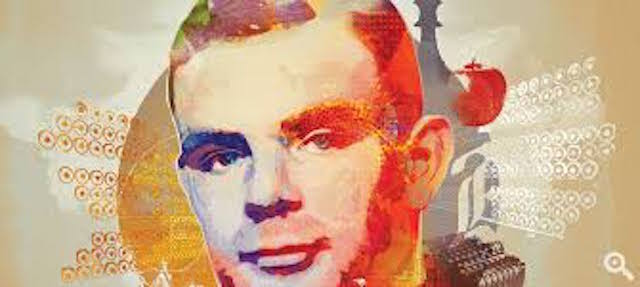Arts Review
Review: Breaking the Code

Breaking the Code tells the life of Alan Turing, a scientist who was instrumental in cracking the Enigma code, crucial for England to win World War II. He was also the inventor of the ‘Universal machine,’ the predecessor of the computer and formulated the ‘Turing test’ as a mathematical means to confirm the possibilities of artificial intelligence (AI). The 2014 Oscar winning film The Imitation Game focused on the significance of the role of Turing in helping decipher the Enigma code enabling British intelligence to read encrypted communications used by the Germans which gave the Brits the advantage needed to end World War II.
Breaking the Code has a very different approach as it examines the life of Turing with a fallible human perspective, rather than focusing on his achievements. The audience witnesses the tragic, yet brilliant life of an innovative genius with a dark secret. Without his unique insights we may now be living in a very different world removed from the technologies we have today and with no options for a Brexit!
On the opening night of a final year student Arts production, the audience expects to make allowances for technical issues, missed marks, and stumbled lines, but instead we were wowed with a flawless and professional presentation which was better executed than many of the professional productions I have seen recently.
The cast of eight were all skillful and credible with some challenging roles and scenes, such as the homosexual embraces which were both professional and touching. Turing was played expertly by Martin Moolman who was a rival for Benedict Cumberbatch from the 2014 film. His imitation of Turing’s stammer was frequent, but not annoying, and he aged convincingly throughout the character’s lifespan. Moolman also delivered a brilliant recital of a keynote speech, inspiring young boys at Turing’s old school. He also managed to portray the dichotomy of the awkward mathematician and the arrogant inventor well.
Dilwyn Knox, the Chief Cryptographer at Bletchley Park and Turing’s manager of the Enigma team was also played convincingly by Alex Neal, despite the character being 30-40 years his senior. The two characters of Dilwyn and Turing worked well together on the stage deluding the audience into believing both were middle aged awkward mathematicians.
The poignant edge to this production was the focus on the other side of Turing’s life as a homosexual living in the times when it was a crime and an imprisonable offence. Turing is thought to have committed suicide with cyanide at the age of 41 after earlier admitting to ‘gross indecency’ leading to his chemical castration and a rescinding of his high-level security clearance. The retell of the tragedy of Turing’s life and mistreatment by a government he had helped selflessly whilst working as a confident of Winston Churchill himself was moving and subtle. It was not until 2009 when a posthumous apology was given to Alan Turing by British Prime minister Gordon Brown and 2013 when he was officially pardoned for being a homosexual by the Queen!
Technically, I found this production to be innovative and with great attention to detail. Lighting was used creatively to construct textures and moods for different scenes. The use of audio-visuals was a smart way of changing timeframes from the future to the past. I appreciated the minutiae of stage design with the drawing of the spiral creating the Fibonacci sequence on the floor and the rotating stage. The filming of the stage from above, with it relayed behind the actors allowed the audience to see these details which would have otherwise been missed.
The written program with details of the cast and crew was informative with a list of eight less known facts about Alan Turing who in his short 41 years was not only the father of the computer and holder of an OBE but was a hippie of his time, an Olympic-level runner and the originator of the biological field of morphogenesis by creating an equation to explain how things grow!
This professional final-year student production of Breaking the Code was brilliantly executed, technically innovative, and professional with only the fresh faces betraying the performers as students. It was a testament to the skills and hard work of the students and teachers at QUT.